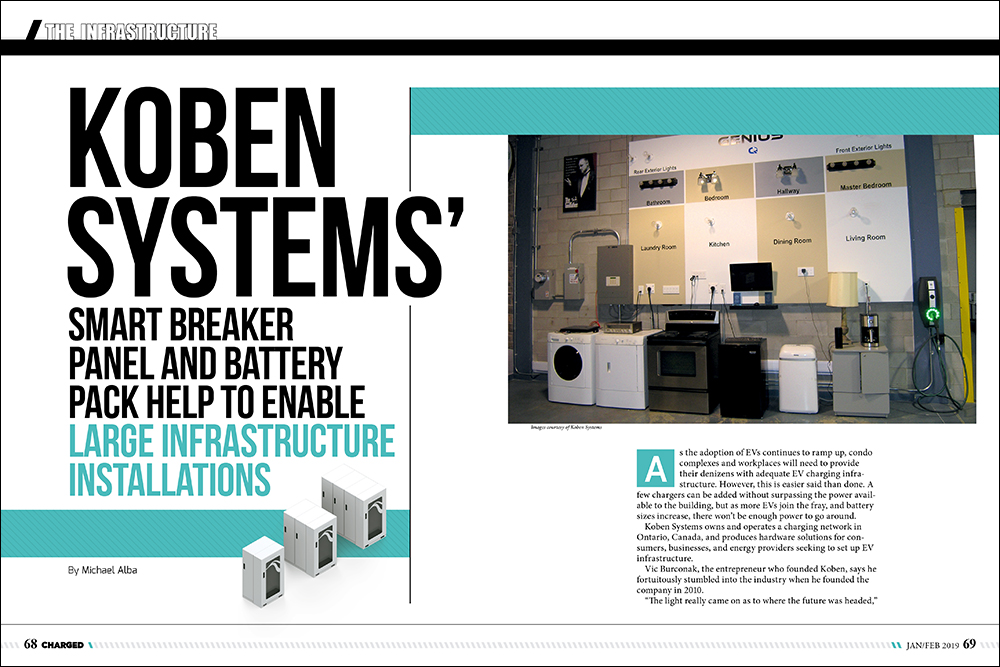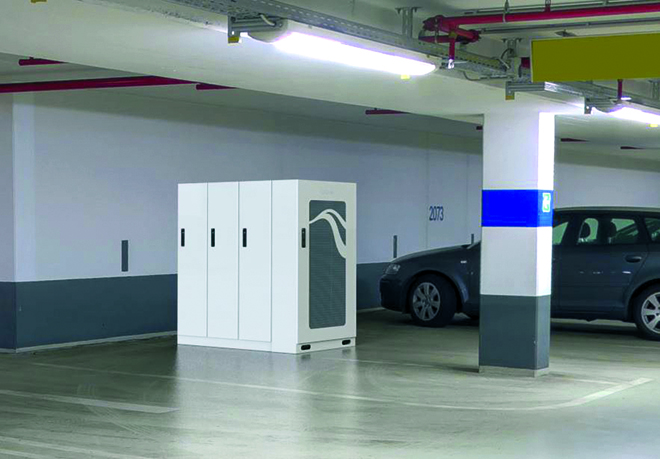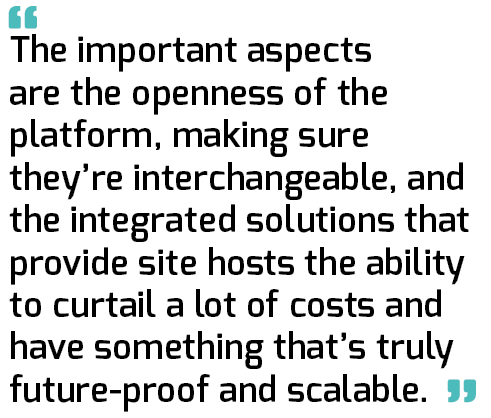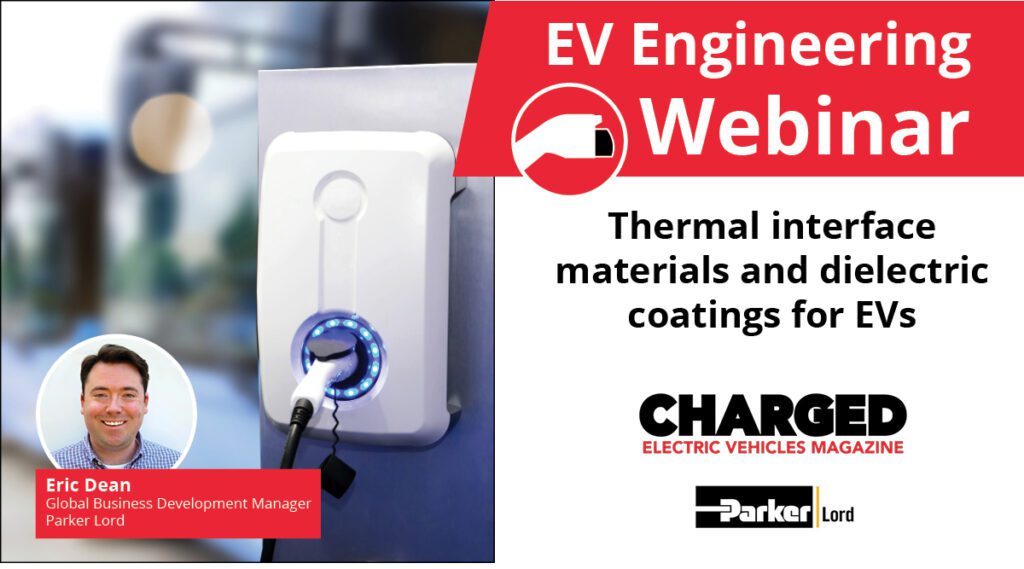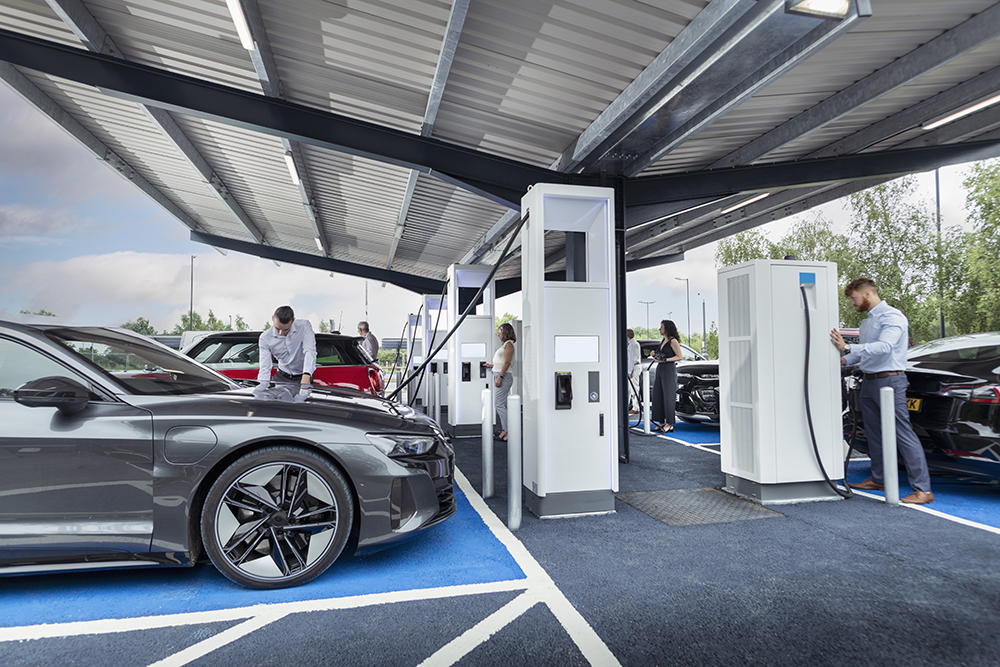As the adoption of EVs continues to ramp up, condo complexes and workplaces will need to provide their denizens with adequate EV charging infrastructure. However, this is easier said than done. A few chargers can be added without surpassing the power available to the building, but as more EVs join the fray, and battery sizes increase, there won’t be enough power to go around.
Koben Systems owns and operates a charging network in Ontario, Canada, and produces hardware solutions for consumers, businesses, and energy providers seeking to set up EV infrastructure.
Vic Burconak, the entrepreneur who founded Koben, says he fortuitously stumbled into the industry when he founded the company in 2010.
“The light really came on as to where the future was headed,” Burconak told Charged. “And it was pretty unique, because the culmination of my experience in sales and operating a business and engineering and electrical sort of just fit in perfectly at a very timely moment.”
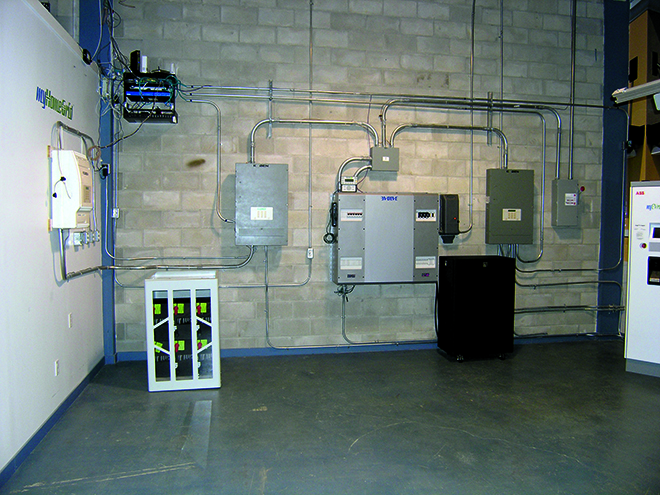
Today, Koben Systems operates what Burconak, now the company’s CEO, says is the largest charging network in Ontario, consisting of a mix of several hundred Level 2 and Level 3 chargers across the province.
Beyond the operation of its charging network, Koben Systems provides two other products aimed at the EV market: EVOLVE EVSF, a battery pack to pair with EV chargers in workplaces and condos, and the GENIUS smart panel, a breaker panel that adds intelligence to a building’s circuits.
“We’re heavily involved with integrated solutions and services not only for the EV market but for renewable and demand response,” said Burconak. “And now we’re starting to deal with utilities as well as providing integrated solutions for EV charging station installers to allow mass deployment in condos and workplaces through integrating battery storage like our EVOLVE system.”
The EVOLVE battery pack
“Some of our competitors utilize load splitting or load sharing, which is okay when you have 5 to 10 chargers,” said Burconak. “But as the industry improves, and some of the vehicles now have 100 kWh batteries, it’s impractical to be doing load sharing and load splitting. You only have 24 hours in a day. And if you try to charge a large bank of 100 kWh EVs with basically 1.2 kW, it’s not going to happen.”
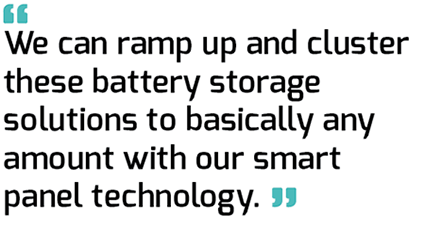
Koben’s solution is the EVOLVE battery pack, a scalable system that can store a building’s excess energy capacity and make it available for EV charging. Using what the company calls store-and-forward technology, EVOLVE stores energy from the grid at off-peak rates and forwards it to EV chargers when the demand is high.
“We can ramp up and cluster these battery storage solutions to basically any amount with our smart panel technology that provides proper sophisticated load management to deliver a full 7.2 kW of power for these larger vehicles that are equipped with larger batteries. It makes it much more practical,” Burconak said.
The EVOLVE system starts at a capacity of 50 kWh, though it can be scaled up as energy demands increase. Koben manufactures the system and pack enclosure. Burconak anticipates that installations will begin in May or June of this year.
The GENIUS smart panel
Next to EVOLVE, Koben Systems’ main offering is the GENIUS smart panel, an alternative to standard breaker panels for residential, retail and commercial sites. The computerized GENIUS panel replaces the standard mechanical panel, providing all the same functionality while adding intelligent monitoring and control of circuit activity. GENIUS provides real-time energy usage data, the ability to integrate multiple renewable sources, and the ability to automatically switch and filter loads. Combined with the EVOLVE battery pack, Burconak sees the GENIUS panel as a way to significantly reduce energy costs associated with EV charging.

“We’re seeing a lot of locations that are struggling with high costs,” he said. “If you fast forward 5 years from now for what’s coming in vehicle adoption, a lot of buildings in North America cannot support that type of volume. We’re working on projects with 150 Level 2 [chargers] in one building, up to 400 in another building. So when you do the math for the power, it’s huge. Demand charges also play a very large part, and GENIUS can ensure that demand charges are reduced and available capacity is never exceeded. And we specialize in behind-the-meter integration for batteries and our GENIUS panel.”
One of the primary ways GENIUS helps facilities manage this power requirement is through the integration of renewable resources such as solar panels. The panels can collect solar energy during the day and store it in the EVOLVE battery packs, and the GENIUS panel will route power as needed. If they like, users can even program the panel to ensure EV chargers are supported only by this solar energy.
This is just part of the control that GENIUS provides users over their circuits. Users can also prioritize their appliances to ensure that, if power demand exceeds the available supply, power is routed to their most important appliances first. In Koben’s view, an EV charger is just another appliance – users can program the GENIUS to ensure that their EV is the last item ever to lose power.
“We treat EV charging as an appliance, which it actually is,” said Burconak. “So for us the characteristics of an EV charger, or a stove, or a dryer, from an electrical perspective is exactly the same, whether it requires 20 amps or 50 amps to operate.”
The GENIUS panel is designed and manufactured in Israel and Manila, and has been deployed globally. Currently, there are two versions of the panel: a North American version and a European version with a smaller footprint for condos. Both are UL-approved. Koben also plans to make the GENIUS panel available to installers of EV equipment.
“We’re making the GENIUS available to EV installers because we recognize that a lot of the installers in North America, when they come into an environment and they’re going to be installing several chargers, they have to buy an electrical panel in most cases,” explained Burconak. “So if you’re going to be spending that kind of money on an electrical panel, why not get something that sets you up for the next 25 or 30 years? Something that’s interconnected and has the artificial intelligence to carry one through to the next levels.”
The integrated approach
In Burconak’s view, the strength of the company’s energy portfolio lies in the integrated and intelligent nature of its products, EVOLVE and GENIUS.
“We’ve now recognized that the integrated solution is where everything is going,” he said. “Because a charger is a charger like a phone is a phone. And the important aspects are the openness of the platform, making sure they’re interchangeable, and the integrated solutions that provide site hosts with the ability to curtail a lot of costs and have something that’s truly future-proof and scalable.”
This article appeared in Charged Issue 41 – January/February 2019 – Subscribe now.






